Nissan technician Jeffrey Moore, 34, a 10-year veteran, says his interest in the UAW "is not about money, it's all just about being fair." Photo by Trip Burns.
CANTON – Michael Carter hardly evokes the Hollywood image of a podium-pounding, fire-breathing labor agitator. With his dark blue "New York" cap, light blue knit shirt, slender build and soft-spoken voice, he looks like what he is: a 38-year-old working man, husband and father of two.
He's sitting in the United Auto Workers' newly opened office just off Nissan Parkway and within view of the 3.5 million square-foot Nissan plant. On the wall behind him is a framed, black-and-white photograph of Martin Luther King Jr. Prominent among the crowd of men close to King is Walter Reuther, the legendary labor leader who helped found the modern-day UAW, a man Barry Goldwater once denounced as a "dangerous menace" and arch-conservative Clarion-Ledger columnist Tom Ethridge blasted in 1964 as "top labor-fuehrer."
Carter has never been a member of a union, never thought he'd ever want or need to join one, but he also never forgot what a union card meant to his father. "I learned more about it when my dad got injured on the job," he says. "He worked with the railroad. When he hurt his back, they tried to say he was drinking, and he wasn't. The union fought for him, and he got his full benefits and retirement.
"I kind of began to understand at that point."
Nine years ago, when Carter landed a much-sought-after job with the $1.4 billion Nissan plant in Canton, joining a union was the farthest thing from his mind. "You had good benefits, good pay, ... an illusion of community," he says.
Today, the Tupelo native earns $23 an hour as a production technician at Nissan. It's a good wage in a state with the lowest per capita income in the nation, some $15,000 more a year than the average Mississippian.
However, Carter is not only thinking and talking union these days, he's one of a growing number at the 3,300-worker plant who've taken a lead in calling for an election to determine whether he and his colleagues should join the United Auto Workers.
'Go Somewhere Else'
Carter tries to piece together for me the path that led him to want to be a union man, just like his dad.
Maybe it started with the company's changes in his health-care benefits. "They said too many people were going to the emergency room," he says.
He soon found his premiums going up and his deductible jump from zero to $2,500. "I had a spot on my leg, and the doctor wanted surgery in case it was cancer," Carter says. "I filed for insurance, and they didn't pay any of the bill. They said, `You haven't made your deductible.' It was $800. I thought they'd pay some of it."
As for Carter's wages, they're good, but he hasn't had a raise in years—he feels he's "topped out" at $23 an hour—and there's little or no chance for promotion.
Meanwhile, the line speed has increased on the shop floor, with production requirements going up even at times when the work week is cut back. "We asked, why did it go up if we cut back to four days? They didn't really give us an answer," he says.
And that's at the heart of the problem.
"You don't have a conversation. No feedback. No answer. When they told us about the new (health) plan, the deductible, they couldn't explain it. There's no relationship."
What he and other workers do get from management, he says, is a lot of talk about how horrible unions are. Whether it's focus meetings or one-on-one sessions, the message is always the same: "Ain't nothing good about a union."
Carter has a hard time digesting that message. "I say that can't be true. There's good in anything."
Fellow technician Jeffrey Moore, 34, a 10-year veteran who earns the same hourly wage as Carter, says his interest in the UAW "is not about money, it's all just about being fair," even though he wonders why he hasn't had a pay raise since 2006 and why workers at Nissan's Smyrna, Tenn., plant typically make $2 or more an hour than Canton workers. "I have a daughter and a wife. That's another reason I want a union. I want to retire at Nissan and make sure they're OK," Moore says.
Lee Ruffin, 45, a nine-year veteran technician, is another Nissan employee talking union. "Everything was fine, everything good, until 2005 and 2006 things started going downhill. Losing benefits, insurance, increasing line speed, which is a safety hazard, people getting hurt on the job, lots of strains and sprains.
"Governor Bryant needs to come down and work and see for himself."
Of course, Carter, Moore and Ruffin aren't holding their breath for that to happen. Bryant didn't respond to several requests for interviews for this story, but in a recent speech in Oxford, he warned that unions would have a negative effect on the auto industry in the South and said he would encourage groups to actively oppose unionization.
The governor is part of a powerful phalanx of business, political and media leaders that stands in total opposition to any hint of a union in Mississippi's automobile industry. "We don't believe a union is needed up there," says Jay Moon, president and CEO of the Mississippi Manufacturers Association. "We don't believe the union would provide any benefits that the workers don't have already."
Many Mississippians agree. "I just have a problem with unions in general," says Nelwyn Madison, 66, of Madison, a former part owner of a software business in the Jackson area. She admits her direct contacts with unions have been limited: "I just absolutely do not think employees have a right to tell employers how to run a company. If you don't like where you are working, then you need to go somewhere else."
Nissan officials certainly agree. "We feel the best way to interact with employees is through direct, two-way communication as opposed to involving a third party," Nissan spokesman Travis Parman says. "This approach to employee relations has been very successful, resulting in a healthy and positive work environment, and encourages the free exchange of ideas."
Carter begs to differ. "They says there's an open door, but you may not get an answer to your question," he says.
'A Silent Storm Brewing'
Photo Gallery
Unionizing Nissan
Three auto workers sat down with writer Joe Atkins at the offices of the UAW in Canton to discuss the possibility of a union in Mississippi. Actor Danny Glover visited Canton to give his support. These are other photos not featured in the cover story.
These testimonies from the two sides of the union question at the Nissan plant in Canton are early volleys in what promises to be a landmark battle, a high-stakes squaring off that could become global in scope.
For the UAW, Canton is key to a $60 million plan to establish its footprint in the South and beyond. At the center of the union's strategy is to have Nissan agree to a set of "Fair Election Principles" that allow both sides equal time in presenting their case to workers. Union leaders stress they respect Nissan and want the company to be financially successful.
However, if Nissan refuses to engage in a "fair election"—and CEO Carlos Ghosn's long record of intense antagonism to U.S. unions indicates it most certainly will—the UAW will take its case to a world stage. UAW officials have talked of a consumer boycott on a scale not seen since the grape boycott that established Cesar Chavez's United Farmer Workers in the late 1960s. Expect workers and community activists carrying banners and passing out leaflets at Nissan dealerships across the land. The Canton story will even be heard at global auto shows.
Just this week, a Nissan-Canton worker accompanied UAW President Bob King to Brazil to speak to Brazilian trade unionists there. UAW representatives meet regularly with trade unionists in Brazil, Japan, Germany, France and other countries.
The UAW Global Organizing Institute is already drawing interns from around the nation and world to Canton to help coordinate a social media networking and organizing effort. "There is a silent storm brewing in people, and the rain is going to start coming down," says Tyson Jackson, 31, one of those interns, a Tougaloo College student from Champaign, Ill.
"Here I can feel the fear of the workers," says Luara Scalasarra, another intern and a labor law student from the Estate University of Londrina in Brazil. "In Brazil, they don't even need to vote. They can just form a union. But it is really good this campaign here. I really believe in this campaign."
The UAW is preparing the same kind of "corporate campaign" that recently forced the Reynolds American tobacco giant finally to agree to meet with the Farm Labor Organizing Committee in North Carolina. A similar campaign by workers at the Smithfield pork-processing plant in Tar Heel, N.C., in 2009 led to their victory in joining the United Food and Commercial Workers.
On the other side, however, is a potential formidable foe: the world's fourth-largest automaker, whose CEO and president once warned Nissan workers in Smyrna in a required meeting on the day before a union election that "bringing a union into Smyrna could result in making Smyrna not competitive, which is not in your best interest or Nissan's." Workers voted down the union.
Carlos Ghosn, a Brazilian of Lebanese descent who also is a French citizen and British knight, enjoys comic-book hero status in Japan for his role as the "turnaround" artist who saved once-struggling Nissan.
To many in France, he's the villainous "cost killer" who shut down plants and slashed jobs on his rise to the top. More recently, he oversaw the implementation of harsh workplace demands at Nissan's French partner Renault that are believed to have contributed to several suicides and suicide attempts between 2005 and 2008 Condé Nast Portfolio magazine reported in September 2008.
What is 'Right to Work'?
"Right-to-work" laws prohibit requirements that someone be a member of a union to work at a unionized workplace. Adopted by a number of states after passage of the Taft-Hartley Act of 1947, the laws allow non-union workers to receive benefits produced as a result of a collective bargaining process. Companies also do not have to require union dues or to deduct union dues from workers' wages.
A "right to work" law does not extend to employees who work in railway or airline industries, and may not apply to employees who work on a federal enclave.
Mississippi is one of 28 states considered a right-to-work state. Mississippi adopted a "right to work" law into its state constitution in 1960.
Onto this battlefield have marched Mississippi workers like Carter, Moore and Ruffin, proclaiming they're never going to be heard unless they speak as one voice. In the heart of the conservative, "right-to-work" South—a term labor activists ridicule as really meaning "right to work for less"—they want to do what the Wagner Act of 1935 gave them full and protected legal rights to do: join a union.
They aren't the first Nissan workers to talk this way. Back in 2007, James Fisher, Yvette Taylor and Stanley Martin challenged the Camelot image of one of Mississippi's premier manufacturers at meetings in Canton and Jackson. They told of terminations for job-related injuries, intimidation and anti-union propaganda. Workers at Nissan's Smyrna plant also came to testify to humiliations and a caustic disregard for work-related injuries and illnesses.
"Nissan's got this big halo, this rainbow over them," Fisher said at the time. "It's all on the outside. We have to fight tooth and nail on the inside. They can do what they want to on the inside. It's always somebody trying to cut somebody's throat."
On hand was a wide range of religious and former civil-rights leaders, and community and political activists who became the seed of a grassroots movement that has now ripened to the point that the UAW can say, "Now is the time."
Canton, Miss., is the place where it will stake its future, and perhaps even the future of the nation's labor movement.
UAW Fight for Survival
UAW officials insist they're here because Nissan workers want them here, that this is a worker-and-community-fueled effort. Certainly workers have reached out. What can't be denied, however, is that the UAW is in a fight for its survival. It must not only staunch the bleeding that has reduced its membership by 75 percent in the last 30 years—from 1.5 million in 1979 to less than 400,000 today—but once again thrive and grow in a new economy that is making the South what Detroit once was in the automobile industry.
Speculation about where the UAW would focus its do-or-die campaign has been heated in the labor and automobile press since January 2011, when UAW President King revealed the union was coming to Dixie come hell or high water. Early reports pointed to the Volkswagen plant in Chattanooga, Tenn., the Hyundai plant in Alabama, or the Toyota plant in Kentucky as Ground Zero. "If we lose, we'll die quicker. If we win, we rebuild the UAW," King told Labor Notes.
King said something prescient even earlier in his October 2010 statement to mark the One Nation March in Washington, D.C.: "We cannot sit back and wait for change to happen. We are the ones who must make change on behalf of all people. Every great achievement for social justice has been the result of the mobilization of people to achieve a just purpose."
With such oratory, King, who took over the UAW presidency in June 2010, evokes the memory of another eloquent speaker, Walter Reuther, who braved brutal attacks by anti-union goons at his home and in the famous 1937 "Battle of the Overpass" at the Ford Company's River Rouge plant in Michigan which put the UAW at the forefront of the nation's labor movement.
In contrast to many other labor leaders, Reuther later embraced the Civil Rights Movement and stood with Martin Luther King Jr. On the steps of the Lincoln Memorial during the March on Washington in 1963.
In many ways, today's South is a far cry from the South Walter Reuther knew. It emerged from its bloody and futile resistance to civil rights in the 1960s to become the heart of the "Sunbelt," encouraging industry and investment, and eventually "Detroit South," which, along with the Midwest, is home to more than a dozen foreign-owned automobile assembly plants plus many other parts factories.
What hasn't changed in the South, however, is the hostility of its political and business leaders to unions.
Despite union contracts in plants at their home countries, none of the German and Asian-owned plants in the region is unionized. That's a glaring reality to a UAW that has had to make concession after concession to the Big Three in this struggling economy and has witnessed the subsequent downward pull on worker wages and benefits everywhere.
The UAW is no stranger to the South. In fact, a November 1936 sit-down strike at General Motors' Lakewood plant in Atlanta became the first shot fired in the historic all-out "Battle of the Running Bulls" that would take place in Flint, Mich., in early 1937, an event that rivals the "Battle of the Overpass" in importance in UAW history.
More recently, in 2003 and 2004, the union won major organizing campaigns with Freightliner workers in North Carolina, Tennessee and Georgia. In fact, the UAW scored victories at smaller companies in Alabama and Kentucky within the past month.
The UAW actually has been in Canton since 2005. In March of that year, then-UAW President Ron Gettelfinger and then-Vice President and National Organizing Director Bob King came to Mississippi to meet with workers and community leaders.
It wasn't until recently, however, that the union firmly decided that Canton would be "the perfect place" to take its stand, as UAW Region 8 Director Gary Casteel, an Alabama native whose region includes the South, describes it.
Casteel lobbied hard to make Canton the UAW's choice even though he knew "there's no guarantee to win." He and others emphasize that race isn't a central issue, but the fact that an estimated 80 percent of the workforce at the Canton plant is black was a factor. Studies show blacks are comparatively more open to joining unions.
Mississippi's rich civil-rights history was another factor. Organized labor as a whole needs to recapture its identity as a social movement, something it had in the 1930s but had lost by the 1950s, they say.
"I had to advocate hard for this," Casteel said in a recent telephone interview.
"We have tremendous worker support there. Nissan hired a heavily African American workforce. I think that is a plus because of the history and the battles fought in Mississippi against all odds. Being from Alabama, knowing how this works in the South, it is just one of those things—the heritage of Mississippi. They have had to fight for the things they have achieved."
Operation Dixie
A fight is what it will take in the South, a region where coal miners and textile workers in the 1920s and 1930s saw their efforts to join unions brutally suppressed.
In 1946, when Congress of Industrial Organizations president Philip Murray launched "Operation Dixie" to organize southern workers, he spoke of a "civil-rights crusade" that would be "the most important drive of its kind ever undertaken by any labor organization in the history of the country." Labor organizers fanned across the South, targeting textile, oil, lumber and other industries. Even in 1946 they knew the South was key to labor's future.
Operation Dixie ended largely in failure, though, as the region's power elite locked arms and exploited the racial divide and post-World War II fear of communism to keep workers from joining unions. Today the South remains the nation's least unionized—and least paid—-region, a uniformly "right to work" land where organizing is doubly difficult because workers can enjoy the hard-earned gains in wages and benefits of a unionized workplace without having to join the union.
Still, the South's anti-union reputation never had a thing to do with the workers themselves, says Bruce Raynor, perhaps the most successful labor organizer in southern history. The hostility to unions comes primarily from the South's political, business and media establishment, he said in a recent telephone interview.
"I have always found southern workers very receptive. It takes persistence. They are up against the powers that be. Southern workers don't like being pushed around, being taken advantage of," Raynor said.
A native New Yorker and president emeritus of Workers United, Raynor worked with the Textile Workers Union of America in the 1970s in the history-making struggle with the powerful anti-union textile firm J.P. Stevens. That struggle, vividly depicted in the film "Norma Rae," led to victory after a corporate campaign that included a national boycott, court challenges and a high-level public relations effort to embarrass the company into recognizing workers' rights.
"With J.P. Stevens, people thought it was hopeless," Raynor recalled. "They ran the state, the local community."
However, the secret to victory is community, he said: "As long as the union lets it be driven by the community, and also involving the religious community. Southerners tend to be religious people. It was the same way in the civil-rights movement."
Recognition of that need motivated the June 3 press conference in Canton where U.S. Rep. Bennie Thompson, D-Miss., Mississippi NAACP President Derrick Johnson, General Missionary Baptist State Convention President Isiac Johnson and others stood alongside a group of Nissan workers to pledge their support for a fair election at the plant. Thompson made it clear that he will monitor Nissan's behavior closely in the months ahead.
Is Nissan Worth It For Taxpayers?
R.L. Nave looks at the numbers to figure out if taxpayers are getting a good deal on Nissan.
As in the past, the biggest obstacle organizers face is fear.
"They have these anti-union meetings—they call them focus meetings," Michael Carter says. "They say, `We're going to give you the facts. If you have a union, we'll close the plant.'"
Workers also fear their jobs may be eliminated or re-classified. The company depends heavily on so-called "temps," workers hired on a less-than-full-time basis with limited pay and benefits. UAW officials say the 1,000 new jobs Nissan recently announced it was adding to the Canton plant will all be "temps."
"There's a fear they'll make our jobs temps," Jeffrey Moore says.
Nissan spokesman Travis Parman discounts such fears. "Our communications meetings with employees are not new. We continuously and routinely meet with our employees to openly discuss matters pertinent to our business."
As for the "temps" issue, Parman says: "Our direct and contract positions are long-term jobs that offer competitive pay and benefits. ... Nissan has never laid off a single employee in the nearly 30 years it's had manufacturing operations in the U.S."
Changed Unions?
Like all Americans, southerners have had a realistic fear of plant shutdowns and relocations to Mexico and China ever since the passage of the North American Free Trade Agreement in 1994. They've seen it happen again and again. The textile and apparel industries alone suffered the erosion of more than 700,000 jobs between 1994 and 2003.
Sujit CanagaRetna, senior fiscal analyst with the southern office of the Council of State Governments in Atlanta and an expert in the southern auto industry, believes the UAW will have an uphill fight to convince southern workers a union will better their lot.
However, he says, auto workers should not fear the kind of shutdowns that devastated the southern textile industry. "That is always the boogeyman, but it is not that easy," CanagaRetna says. "That is an unlikely scenario. I think there would be negotiated settlements. I don't think we run the risk of Nissan closing shop and leaving."
The foreign transplants' advantages in the South are too numerous, he says. Their proximity to major markets, ports and other transportation, and an established network of suppliers would override concerns about a union.
Furthermore, he says, unions have changed. For example, UAW leader King has distanced himself from many of the old work rules and other factors that management scorned as impediments to productivity and profitability.
"The whole environment has changed in terms of union versus nonunion environment," CanagaRetna says. "It has become much more of a collaborative process."
Mark Klinedinst, professor emeritus of economics at the University of Southern Mississippi, believes unions actually benefit a company as well as workers.
"Typically, unions have been in the forefront in getting better wages, benefits, working conditions," he says. "That is a very honorable tradition. It helps make for a stronger middle class. I think it is important as corporations get larger, that employees have a chance to have a voice as well. Modern management says that in all parts of an institution, important stakeholders should have a voice. Unions could offer that channel."
The prosperity the nation enjoyed from the 1940s through the 1960s came at a time when union representation was at its highest, Klinedinst says. "We'd be helped by having a stronger middle class," he says.
Certainly the folks at the UAW would agree, and so would workers like Michael Carter, Jeffrey Moore and Lee Ruffin. Nissan officials believe their workers already have the tools to make a strong middle class.
One of the most famous labor ballads of the 1930s asked the age-old question: "Which Side Are You On?" It's a question waiting for an answer in Canton, Miss.
Editor's Note: A side box on the definition of "right to work state" was erroneously appended to the earlier online version of this state, making it appear as if it was the ending to Joe Atkins' story. It was not and has been replaced and updated. We apologize for the error.
Related Stories

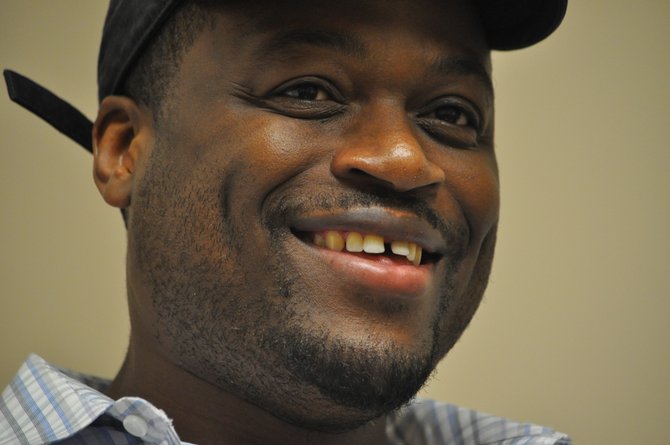
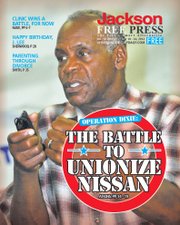

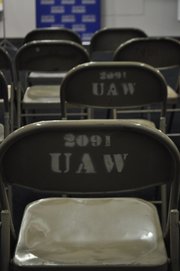
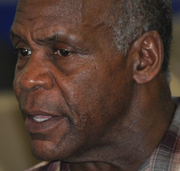
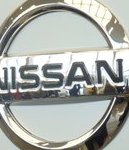

Comments